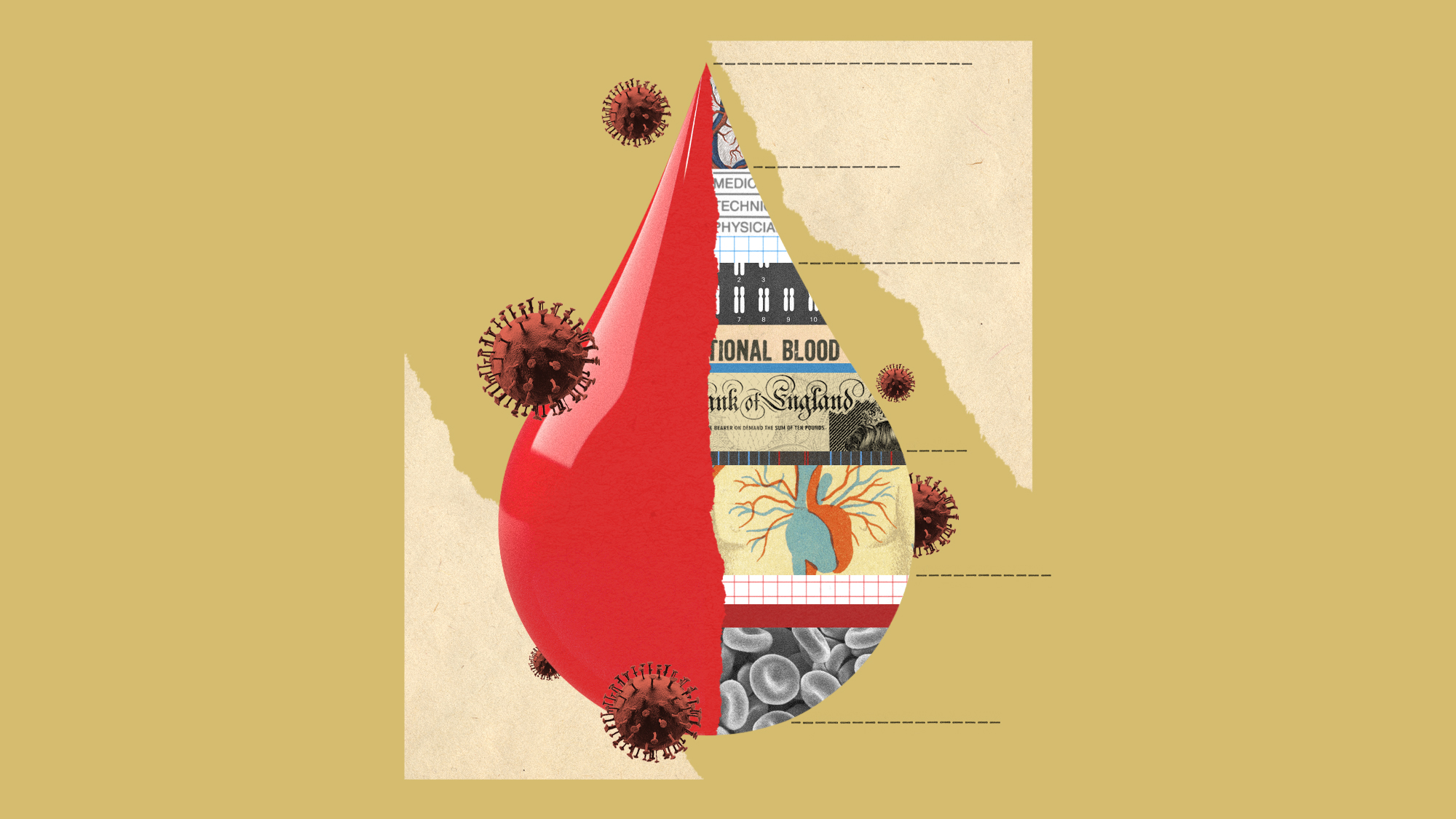A 'transformative' gene therapy for haemophilia B
Costly treatment that could be 'truly life-changing' for patients with rare blood disorder gets funding boost

A free daily email with the biggest news stories of the day – and the best features from TheWeek.com
You are now subscribed
Your newsletter sign-up was successful
The NHS can now offer patients with a rare blood disorder a "transformative" new treatment after the UK's medicines watchdog gave its funding the green light.
Around 200 people with haemophilia B will be eligible for the gene therapy, which helps their body produce blood-clotting factors and "frees" them from regular treatments, said Bloomberg.
What is haemophilia B?
This genetic disorder is much rarer than haemophilia A, said Great Ormond Street Hospital (GOSH). Around 2,000 people in the UK have the condition.
The Week
Escape your echo chamber. Get the facts behind the news, plus analysis from multiple perspectives.

Sign up for The Week's Free Newsletters
From our morning news briefing to a weekly Good News Newsletter, get the best of The Week delivered directly to your inbox.
From our morning news briefing to a weekly Good News Newsletter, get the best of The Week delivered directly to your inbox.
Due to a mutation in their DNA, patients with haemophilia B either can't produce enough of factor IX – a specific protein that makes blood clot – or lack it entirely. "Without this crucial clotting component, bleeds are bigger and longer," said the BBC.
Treating haemophilia B requires constant care and monitoring. As a preventative course of treatment, people with the blood disorder receive weekly injections of factor IX to enable their blood to coagulate, said GOSH. On-demand injections are also administered if a patient injures themselves or undergoes surgery.
How does this gene therapy work?
The drug, Hemgenix, has been found to have long-term benefits for those with the condition. Clinical trials began in 2019, with 54 male patients from the US, EU and UK taking part. Then the gene therapy was "still just an experimental idea", said the BBC.
The therapy is administered as a "one-off infusion, lasting about an hour". Patients receive "engineered viruses" with "copies of the fully functional factor IX instructions". The viruses then "act like a fleet of microscopic postmen, delivering those blueprints to the liver". The organ is then able to follow the instructions to produce the clotting protein.
A free daily email with the biggest news stories of the day – and the best features from TheWeek.com
What impact will the treatment have?
NHS England's national medical director Professor Stephen Powis described the therapy as "transformative". Its impact, he said, could be "truly life-changing".
Five years after being part of the clinical trial, Elliott Collins, 34, told the BBC: "I feel cured." Before, "I would have to think about it all the time". Now, "for it to completely disappear", it's changed me "mentally and physically".
The therapy may not prove as effective for all patients, however. Of the 54 men who took part in the clinical trial, two continued to need factor IX injections. "And nobody knows how long it will last." Some research has suggested it could be more than 10 years.
The therapy is also "not considered a true 'cure'", said the BBC, as it won't stop people with the disorder from passing it on genetically.
What's the price tag?
The gene therapy comes at a hefty cost: £2.6 million, making it "one of the world's most expensive" treatments. "England's thrifty drug-cost regulator" (the National Institute for Health and Care Excellence, or Nice) has endorsed the investment for "a limited period" while the drug's efficacy "remains under scrutiny", said Bloomberg.
The financial "deal" between the manufacturer CSL Behring, NHS England and Nice is "bound up in confidentiality agreements", said the BBC, but it is "essentially a performance-related pay for drugs", the "first such deal" that the health service has struck.
Now that its funding has been approved, the therapy will be made available at centres in London, Manchester, Leeds, Bristol, Cambridge, Birmingham and Oxford.
Julia O'Driscoll is the engagement editor. She covers UK and world news, as well as writing lifestyle and travel features. She regularly appears on “The Week Unwrapped” podcast, and hosted The Week's short-form documentary podcast, “The Overview”. Julia was previously the content and social media editor at sustainability consultancy Eco-Age, where she interviewed prominent voices in sustainable fashion and climate movements. She has a master's in liberal arts from Bristol University, and spent a year studying at Charles University in Prague.
-
 Why is the Trump administration talking about ‘Western civilization’?
Why is the Trump administration talking about ‘Western civilization’?Talking Points Rubio says Europe, US bonded by religion and ancestry
-
 Quentin Deranque: a student’s death energizes the French far right
Quentin Deranque: a student’s death energizes the French far rightIN THE SPOTLIGHT Reactions to the violent killing of an ultraconservative activist offer a glimpse at the culture wars roiling France ahead of next year’s elections
-
 Secured vs. unsecured loans: how do they differ and which is better?
Secured vs. unsecured loans: how do they differ and which is better?the explainer They are distinguished by the level of risk and the inclusion of collateral
-
 ‘Zero trimester’ influencers believe a healthy pregnancy is a choice
‘Zero trimester’ influencers believe a healthy pregnancy is a choiceThe Explainer Is prepping during the preconception period the answer for hopeful couples?
-
 A real head scratcher: how scabies returned to the UK
A real head scratcher: how scabies returned to the UKThe Explainer The ‘Victorian-era’ condition is on the rise in the UK, and experts aren’t sure why
-
 How dangerous is the ‘K’ strain super-flu?
How dangerous is the ‘K’ strain super-flu?The Explainer Surge in cases of new variant H3N2 flu in UK and around the world
-
 Stopping GLP-1s raises complicated questions for pregnancy
Stopping GLP-1s raises complicated questions for pregnancyThe Explainer Stopping the medication could be risky during pregnancy, but there is more to the story to be uncovered
-
 RFK Jr. sets his sights on linking antidepressants to mass violence
RFK Jr. sets his sights on linking antidepressants to mass violenceThe Explainer The health secretary’s crusade to Make America Healthy Again has vital mental health medications on the agenda
-
 Nitazene is quietly increasing opioid deaths
Nitazene is quietly increasing opioid deathsThe explainer The drug is usually consumed accidentally
-
 The plant-based portfolio diet invests in your heart’s health
The plant-based portfolio diet invests in your heart’s healthThe Explainer Its guidelines are flexible and vegan-friendly
-
 More women are using more testosterone despite limited research
More women are using more testosterone despite limited researchThe explainer There is no FDA-approved testosterone product for women